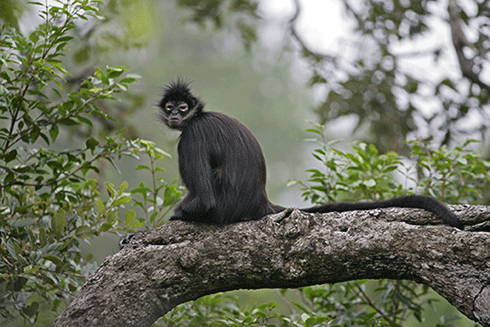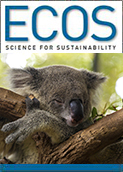
|
Published: 17 July 2014
Research calls for a new diet classification for mammals
An analysis of 139 land mammals’ dietary preferences has found many diets vary beyond the current understanding of herbivore, carnivore, or omnivore, leading researchers to call for a new classification system.

|
|
Geoffroy’s spider monkey, herbivore or carnivore? Credit: Thinkstock
|
Research by Macquarie University’s Silvia Pineda-Munoz, and Associate Professor John Alroy found that the majority of mammals eat both plant and animal foods, leading to the conclusion that very few are pure ‘herbivores’ or ‘carnivores’.
Additionally, the widely used ‘omnivore’ category puts animals eating meat and vegetation together with ones eating insects and seeds, which are very distinctive dietary specialisations.
The researchers instead suggest classifying species based on their main food choice, and also propose using the term ‘generalist’ for animals without a particular dietary preference.
A suggested list of main dietary specialisations include granivores, insectivores, carnivores, herbivores and frugivores among others.
‘Diet needs to be thoroughly described and classified because it tells us how animals interact with each other and with their environment,’ said lead researcher Silvia Pineda- Munoz.
‘A good dietary classification helps scientists understand how animals evolved or what extinct species ate millions of years ago. Thus, researchers need a uniform dietary classification that allows for easier comparison among studies.
‘It makes sense to group similar diet types into categories, but we need this to accurately reflect what is actually being eaten. Our research indicates that the common herbivore versus carnivore categories are misleading.’
The researchers collated data from a variety of animals from around the world including brown bears, the Australian red-legged pademelon, spider monkeys, chipmunks, and the common mouse.
The full paper, Dietary characterization of terrestrial mammals, has been published by Proceedings of the Royal Society B.
Source: Macquarie University



